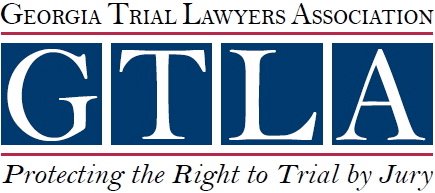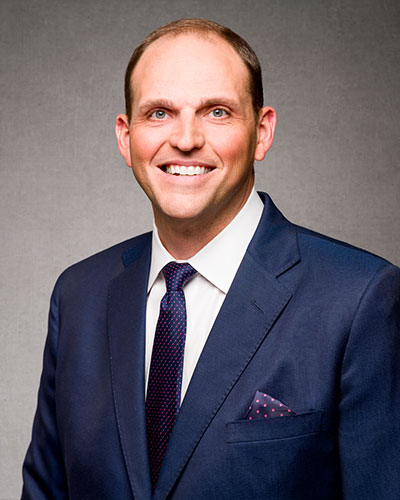If you’ve been involved in a boat accident, you’re likely feeling a mix of confusion, concern, and even frustration. Whether the accident occurred on Georgia’s scenic lakes or along its coast, navigating the aftermath can be overwhelming. The process of seeking compensation for injuries, damages, and lost wages may seem complicated, and you may not know where to turn. It’s completely natural to feel this way, and it’s important to remember that you don’t have to face these challenges alone. If you find yourself in this situation, you may want to consider resolving your dispute through mediation. This method offers a more cooperative approach to settling a case, often resulting in faster, more cost-effective outcomes.




Mediation is a popular option in Georgia boat accident cases for resolving disputes between the parties involved. It can help you avoid the long, stressful process of going to trial, and in many cases, it can lead to a fair resolution without the need for litigation. In this blog, Princenthal, May & Wilson, LLC will explore how mediation works in boat accident cases and why it might be the best option for resolving your case. We’ll also explain how an experienced lawyer can guide you through this process to help you achieve a successful result.
What is Mediation in Boat Accident Cases?
Mediation is a form of alternative dispute resolution (ADR) where both parties agree to meet with a neutral third party, known as a mediator, to discuss their case. Unlike a judge or jury, a mediator does not make decisions for the parties. Instead, their role is to facilitate communication, help clarify issues, and guide the parties toward a mutually agreeable resolution. Mediation is voluntary, meaning both sides must agree to participate, and it takes place outside of the courtroom.
In a boat accident case, mediation might involve the boat operator, the injured party, their insurance companies, and possibly other parties involved in the accident, such as boat manufacturers if there’s a product liability concern. The goal of the mediation process is to reach an agreement on matters such as liability, damages, medical costs, and other compensation related to the accident. Mediation is often quicker than going through a full trial, which can take months or even years.
Why Choose Mediation Over Going to Trial?
There are several reasons why mediation can be an attractive option in Georgia boat accident cases. One of the main advantages is that it’s generally less time-consuming and less expensive than going to trial. Litigation often involves numerous legal filings, court appearances, and the preparation of lengthy documents, all of which can add up to significant costs. Mediation, on the other hand, tends to be faster and more focused. The process typically only takes a few hours or a day to complete, and the costs involved are usually much lower than those of a trial.
Mediation also offers a more flexible, informal setting for resolving disputes. Unlike the rigid structure of a courtroom, mediation allows for open and honest discussions between the parties. This can create an atmosphere of cooperation rather than one of confrontation. Many boat accident cases involve emotional and personal elements, such as physical injuries or emotional trauma. Mediation provides a way for both parties to address these concerns in a way that respects the emotional aspects of the case, allowing for more empathetic outcomes.
Another significant benefit of mediation is that it can help preserve relationships. This is particularly important in boat accident cases that involve family members, friends, or business associates. In situations where the parties may need to continue interacting after the accident, mediation can help foster a more amicable resolution that minimizes long-term animosity.
How Does the Mediation Process Work?
The mediation process begins with both parties agreeing to the mediation and selecting a mediator. The mediator is typically a neutral party who has experience in resolving disputes. In boat accident cases, the mediator might be an attorney or a former judge, but they do not represent either side. Instead, they work to facilitate the discussions and guide both parties toward finding common ground.
Once the mediator is selected, the parties will schedule a mediation session. During this session, both sides will have an opportunity to present their side of the story. They can discuss their version of the accident, the damages they’ve incurred, and any evidence they have to support their claims. The mediator will then help both sides explore potential solutions, sometimes meeting with each party separately in what is known as a “caucus.”
The mediator’s goal is to help the parties find a resolution that is acceptable to both sides. This might include negotiating compensation for medical bills, lost wages, pain and suffering, or property damage. While the mediator does not have the authority to impose a decision, they can guide the negotiation process and suggest compromises that both parties can agree to.
If both parties reach a settlement during mediation, they will sign an agreement that outlines the terms of the settlement. This agreement is legally binding, meaning that both parties are obligated to honor it. If mediation does not result in a settlement, the case can still proceed to trial. However, even if a settlement is not reached during mediation, the process often helps clarify the issues, making it easier to proceed with the next steps.
Hiring a Personal Injury Attorney How Long Will a Personal Injury Case Take?Related Videos
The Role of a Lawyer in Mediation
While mediation is designed to be a more informal process, having a lawyer by your side is essential. A lawyer experienced in boat accident cases can help you understand the legal aspects of the mediation and ensure that your rights are protected. They can also help you prepare for the mediation session by gathering evidence, documenting your injuries and damages, and identifying the key issues that need to be addressed.
During the mediation, your lawyer will advocate for your interests, ensuring that the settlement offer is fair and that you are not pressured into agreeing to something that is less than what you deserve. Lawyers who handle boat accident cases have a deep understanding of the relevant laws, such as maritime laws and Georgia state laws governing boating accidents. This knowledge can be invaluable in the mediation process.
Additionally, an experienced lawyer can help you assess any settlement offers and advise you on whether it’s in your best interest to accept them. They can also help you explore other avenues of compensation, such as pursuing claims against insurance companies or manufacturers of defective boat parts. Having a lawyer who is skilled in negotiating settlements can make a significant difference in the outcome of your case.
Representative Cases
What Happens If Mediation Doesn’t Work?
While mediation is an effective way to resolve many boat accident disputes, it’s important to recognize that it does not always lead to a resolution. If mediation is unsuccessful, the case may proceed to trial. However, even in these cases, mediation can still be valuable. It helps clarify the issues and may result in the parties being closer to a resolution when they eventually go to court.
Moreover, many courts in Georgia encourage or even require mediation before allowing a case to go to trial. If your case does end up in court, the fact that you participated in mediation will be considered, and the court may take that into account when making its ruling.
Why You Should Consider Mediation
If you’ve been involved in a boat accident, resolving your dispute through mediation can be a smart option. It offers a way to settle your case in a more efficient and cost-effective manner than going to court. Mediation can provide you with the opportunity to negotiate a fair settlement while maintaining control over the outcome. With the right lawyer by your side, you can be sure that your rights are protected, and you can work toward the compensation you deserve.
If you are dealing with the aftermath of a boat accident, don’t hesitate to reach out for help. Princenthal, May & Wilson, LLC is here to provide compassionate, experienced legal representation. Our team is ready to guide you through the mediation process and help you work toward a resolution that works for you. Contact us today to learn more about how we can help with your case.





